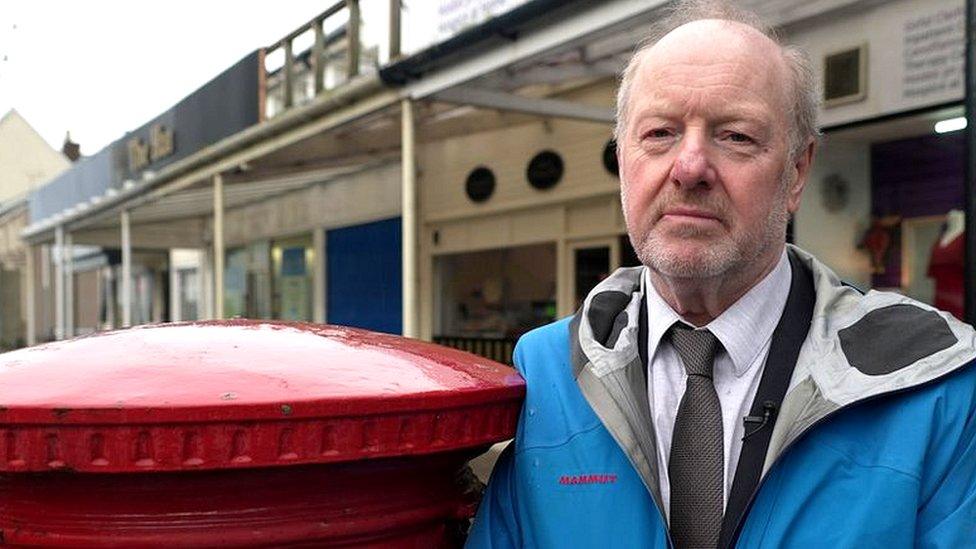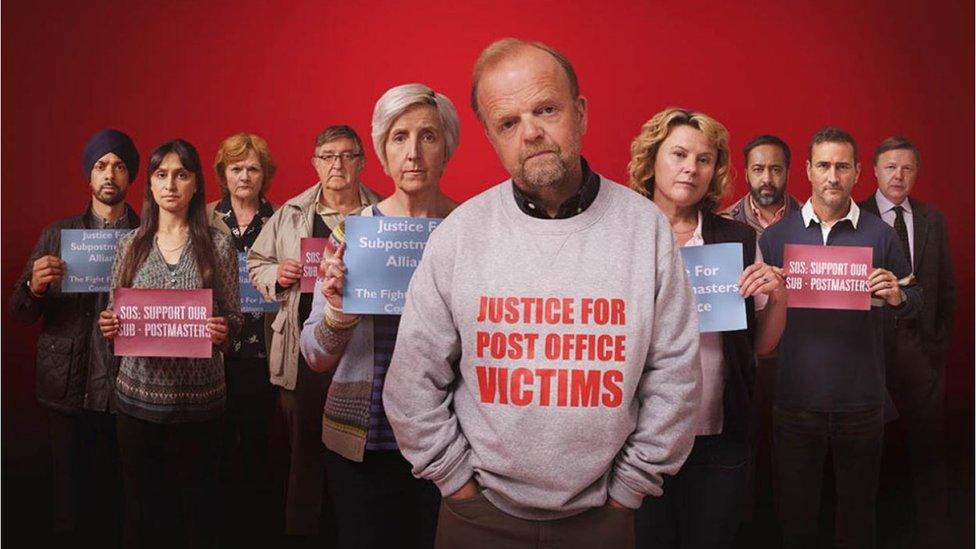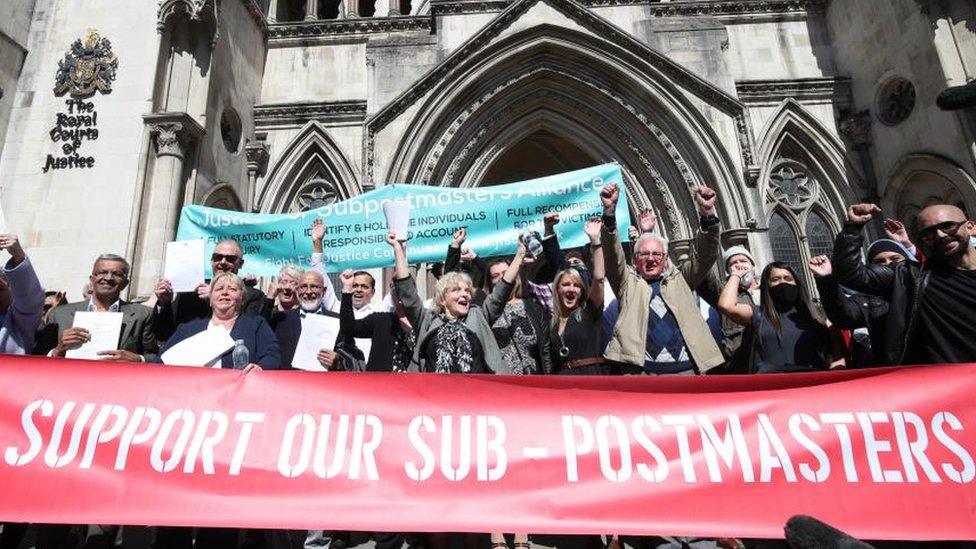Alan Bates criticised speed of Post Office payouts days before offer
- Published

Alan Bates branded his compensation offer "cruel"
Alan Bates wrote to the government criticising the speed of Post Office scandal compensation payouts - just days before he was made an offer.
The former sub-postmaster, whose story sparked an ITV drama, said in a 22 January letter seen by BBC Two's Newsnight that the scheme needed a "radical boot up the backside".
He said he received a "cruel" compensation offer on Wednesday.
Business Secretary Kemi Badenoch has vowed to look into his complaint.
In the letter to Post Office Minister Kevin Hollinrake, Mr Bates said claims from some victims were being processed too slowly.
Mr Bates, whose own offer was received 111 days after his claim was submitted, wrote: "This is certainly not in the best interests of the victims in the group who continually look for closure of the painful events they have endured which continue to drag on year after year."
He suggested the firm assessing claims for the government should pay a £1,000-a-day penalty to the victim in question if they had not received an offer within 40 days.
Mr Bates added the current compensation scheme "needs a radical boot up the backside to actually get things moving".
'Most offers acceptable'
Mr Hollinrake said Mr Bates "quite rightly" raised the issue of speed and reiterated a commitment to issue 90% of initial offers within 40 days of receiving a full claim.
An independent panel will decide compensation amounts if victims and the government cannot reach an agreement.
In his 29 January reply, also seen by Newsnight, Mr Hollinrake said the "great majority" of offers made so far had been acceptable to victims.
He added: "No cases have therefore had to be assessed by the independent panel yet but I am confident in their ability to do so."
On 31 January, Mr Bates said he had received a compensation offer that was worth about a sixth of what a claim prepared with the help of forensic accountants had asked for.
He earlier told the Daily Telegraph, external: "Full and fair might be His Majesty's Government's interpretation, but in reality the offer is derisory, offensive and after all this time, yes, cruel.
"I will absolutely be turning this offer for financial redress down.
"It's just a terrible way to treat human beings - and I have heard from several sub-postmasters who have received similarly derisory offers, while others are still waiting."
Ms Badenoch has said that she will look "personally" into Mr Bates's complaint and, while not going into the specifics of the case, confirmed she had asked for a meeting.
The government confirmed plans for "full and fair compensation" to sub-postmasters affected by the IT scandal in 2022.
Watch: Former sub-postmasters and sub-postmistresses talk to BBC Breakfast
Mr Bates's two-decade fight inspired the recent ITV series - "Mr Bates vs the Post Office" - which told the story of hundreds of sub-postmasters and postmistresses who were wrongly prosecuted after faulty computer software calculated money was missing from post office branches.
The Post Office brought many of the Horizon IT cases to court itself, and between 1999 and 2015, it prosecuted 700 people - an average of one person a week.
In 2017, a group of 555 sub-postmasters took legal action against the Post Office and two years later it agreed to pay them £58m in compensation, but much of the money was swallowed up by legal fees.
Mr Bates, who took over a Post Office counter in Llandudno, north Wales in 1998, was among more than 500 people who received an average of about £20,000 after the High Court ruling in 2019.
Although campaigners won the right to have their cases reconsidered, only 95 convictions had been overturned.
The government has promised to quash their convictions and pay compensation.

Toby Jones starred in ITV's Mr Bates vs the Post Office, which aired earlier this month
The government has previously said it would "swiftly exonerate and compensate" those affected and settle all claims by 7 August 2024.
Victims will be able to sign a form to say they are innocent, in order to have their convictions overturned and claim compensation.
Additional reporting by Thomas Mackintosh


Related topics
- Published10 January 2024

- Published10 January 2024
